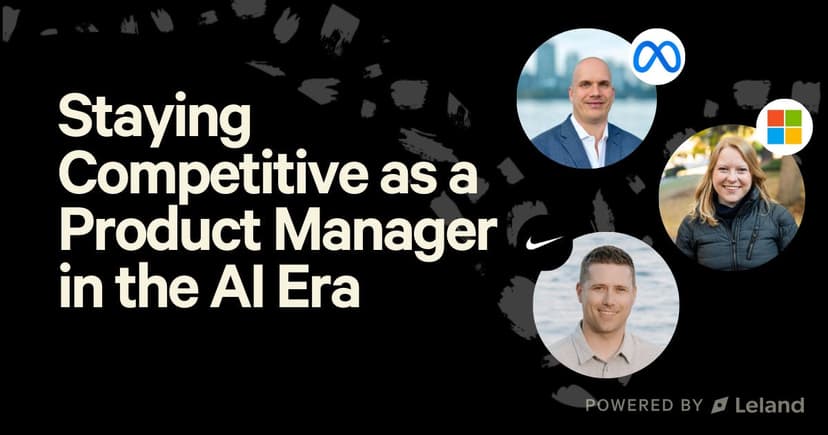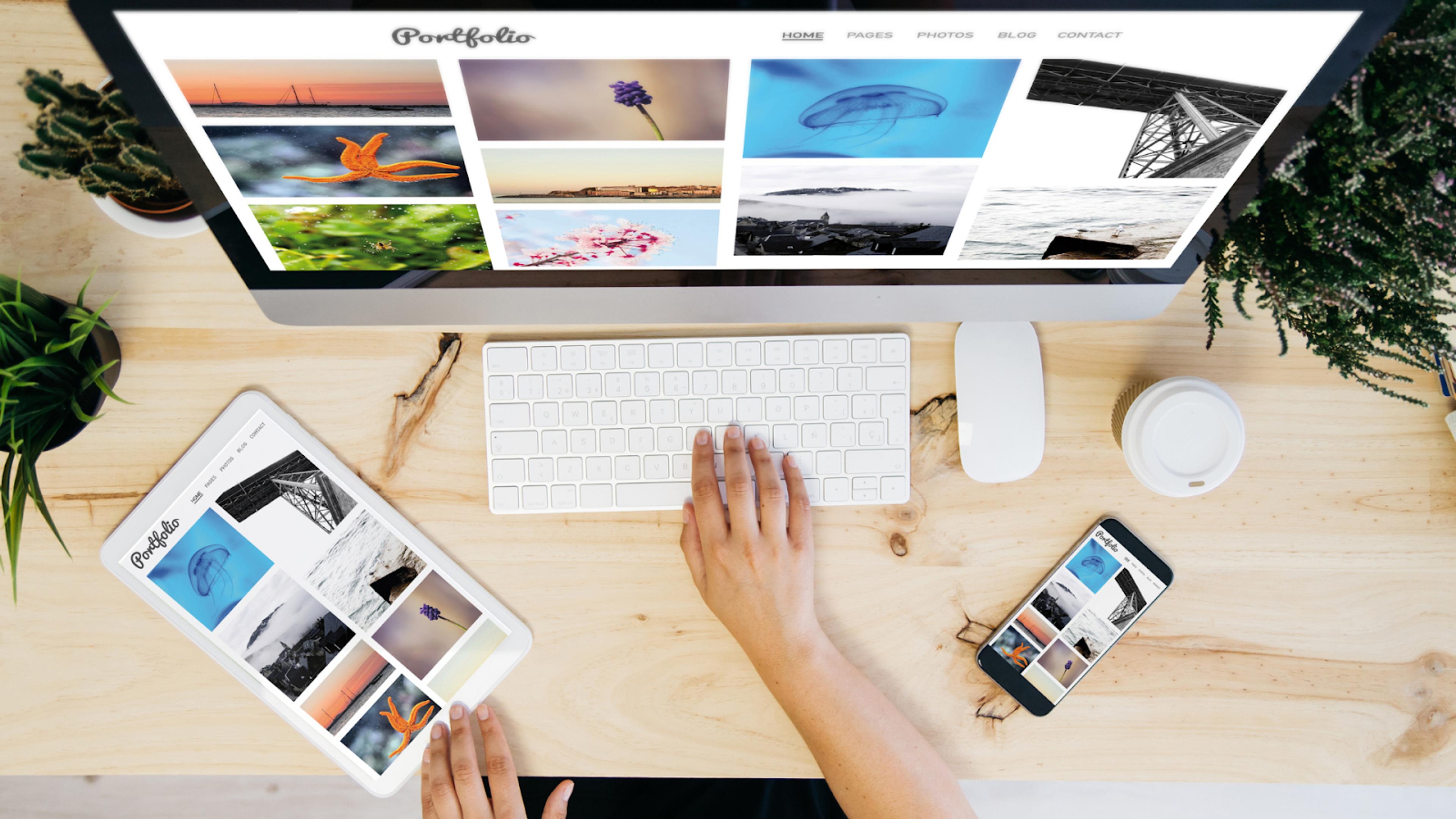Product Manager Interview Prep: Top Resources & Tips (2025)
Get ready for your interview with top resources, expert tips, and proven strategies to help you succeed. Start your prep and nail your product manager interviews.
Posted September 4, 2025

Join a free event
Learn from top coaches and industry experts in live, interactive sessions you can join for free.
Table of Contents
If you're getting ready for a product manager interview, it is important to focus on several areas. You should be able to clearly explain product management by outlining the role and responsibilities of a product manager. Hiring managers will also evaluate your skills and suitability for the role through targeted interview questions. This article will guide you through these areas and provide expert tips on how to prepare for your interview, including how to understand the role of a product manager, researching the company and position, reviewing common product manager interview questions, preparing your responses to behavioral questions, honing your technical skills, standing out from other candidates, and navigating tricky interview questions with confidence.
Read: An Overview of the Different Roles in Product Management
The Product Management Interview Process
The product management interview process is structured to test your ability to strategize, lead, and manage product development from start to finish. Whether you're interviewing with a startup or a tech giant like Google, you’ll need to showcase a wide range of skills, including technical know-how, leadership, communication, and strategic thinking.
Here's a breakdown of what to expect during the process:
Interview Preparation
The product manager interview typically includes multiple stages, each designed to assess different aspects of your experience, skills, and problem-solving abilities. Here’s how you can prepare by knowing what the process looks like:
Initial Screening
This is usually a phone or video call with a recruiter. Expect behavioral questions and an overview of your background. Be ready to explain your product management journey, leadership style, and why you’re interested in the role.
Technical Interview
For technical product manager roles, you'll be tested on your technical skills and understanding of systems architecture, software development, or product optimization. You might be asked to assess technical trade-offs and explain how you'd balance new features with technical debt.
Read: The Most Common Technical Product Manager Interview Questions
Product Design and Strategy
You’ll likely be asked to develop a product strategy or design a new feature. This can include questions about user research, customer-centric approaches, or building a product roadmap. Companies may ask you to walk through how you prioritize product features or how you adapt to market trends.
Behavioral Questions
Expect behavioral interview questions designed to evaluate your communication skills, teamwork, and leadership. You might be asked about a time you led a cross-functional team or how you handled a major challenge during a product launch.
Read: The 10 Most Common Product Management (PM) Behavioral Interview Questions
Final Round
This often includes interviews with senior management or the executive team. Here, you’ll discuss broader strategic questions, like how to align a product vision with the company’s business model and goals.
Read: The Best Product Manager Interview Prep to Land the Offer
How to Stand Out from Other Candidates with Relevant Experience
One of the best ways to stand out in a product manager interview is by showcasing data-driven success stories from your previous roles. For example, during your interview preparation, think about specific projects where you used user feedback and data analysis to drive significant product improvements.
For example:
“In a previous role as a product manager, I led the development of a new feature for a mobile app targeting e-commerce users. After conducting extensive user research, we identified a pain point: users were abandoning their shopping carts at a high rate. By analyzing the product metrics, we found that 60% of users were dropping off during the payment process due to poor user interface design. I led a team of engineers and designers to simplify the checkout flow, reducing the number of steps from 5 to 3. Post-launch, we saw a 25% increase in completed transactions and a 15% boost in overall revenue within two months.”
This example shows how one applied data-driven decision-making and a customer-centric approach to solve a business problem. It also highlights one’s ability to lead cross-functional teams, work with technical teams, and align our efforts with the company’s broader product vision. It’s a specific, quantifiable success that aligns with the key qualities hiring managers look for in a product management candidate.
In your PM interview, be sure to frame similar accomplishments in a way that showcases your technical skills, ability to drive product strategy, and proficiency in product management practices like user research and product road mapping. Sharing specific examples with clear outcomes will make you stand out from other candidates.
Read: How to Become a Product Manager (For Every Career Stage)
Using Frameworks for Answering Interview Questions
To prepare for a product manager interview, it's helpful to have a simple structure for answering questions. A great way to do this is by using the STAR method, which stands for Situation, Action, Result, and Lessons learned. Start by explaining the situation. The background or problem you were facing. Then, describe the action you took to solve it, showing your thought process and decision-making skills. After that, share the result of your actions, ideally with metrics or outcomes that demonstrate your impact. Finally, reflect on the lessons learned to show how the experience helped you grow.
Using the STAR method helps you organize your answers in a way that’s clear and easy to follow. It also ensures you cover all the important points, so you don’t leave out key details. This approach works well for behavioral questions, which are common in product management interviews, and allows you to present your problem-solving skills, leadership abilities, and the value you bring to the table in a structured, professional way.
Common Mistakes to Avoid During the Interview
When you’re going into a product manager interview, there are a few mistakes you’ll want to avoid. First, don’t show up without researching the company or its products. You need to know what they’re about and how you can contribute. Also, make sure your answers are clear and convincing. Vague responses won’t impress anyone. You’ll also want to show that you can work well with cross-functional teams. Product management is all about collaboration, so don’t make it seem like you work in isolation. Lastly, remember that interviews are a two-way conversation. Ask questions about the role, the team, and the company’s goals. It shows you’re interested and engaged.
It is also important to demonstrate that you really understand product management. This means you should be familiar with how product teams operate, the decision-making process behind new features, and how to measure success through things like metrics and KPIs. Showing you know the ins and outs of the role will help prove that you’re ready to contribute right away.
Following Up After the Interview
After the interview, it’s important to follow up with a thank-you note or email. This shows your appreciation for the opportunity to interview and keeps you top of mind with the hiring manager. In your follow-up message, reiterate your interest in the role and highlight any additional qualifications or insights you may have gained during the interview. Following up is a crucial part of the product manager interview, as it allows you to reiterate your interest and highlight additional qualifications.
Top Resources for your Product Manager Interview
- The 20 Most Important Product Manager Skills
- An Expert’s Guide to Resumes: Five Tips to Make You Stand Out
- Product Management Case Study Interviews: The Ultimate Guide
- The Best Newsletters & Podcasts for Product Management
- Product Sense: What it Is & How to Develop It
- 20+ Free Product Management Resources
- Top 20 APM Programs (2025)
- The 10 Best MBA Programs for Product Management
5 Expert Tips for Product Manager Interview Prep
Master the Product Manager Interview Frameworks and Decision-Making Process
One key mistake candidates make during product manager interviews is not demonstrating a clear approach to decision-making. To stand out, it's crucial to develop a structured way of thinking. Use frameworks like Kano analysis, RICE scoring, or ICE scoring to showcase your process when prioritizing features or solving complex problems. This demonstrates product sense and a deep understanding of how to evaluate trade-offs, which is a vital skill for PMs. For example, if you’re asked a product design question about improving an existing product, talk through how you’d use these frameworks to assess user needs, success metrics, and resource constraints. This not only shows your problem-solving skills but also your ability to use data to make decisions.
Prepare for Mock Interviews with Experienced Product Managers
While many people do mock interviews, they often don’t simulate the actual interview process effectively. Focus on conducting mock interviews with experienced product managers who have been through the interview at top tech companies. These experts will provide feedback on your technical questions, behavioral questions, and your answering techniques. Prepare structured answers using the STAR method for behavioral interviews to clearly show your leadership in cross-functional teams. Practicing these interviews will help you get comfortable with the format, refine your product management interview preparation, and pinpoint areas where you may be weak.
Refine Your Ability to Evaluate Product Performance and Success Metrics
In PM interviews, you’ll often be asked to define and track success metrics for a product. This is not just about guessing KPIs but about understanding the customer’s pain points and how your product can address them. Dive deep into user research, market size, and the decision-making process behind key product features. Be ready to answer questions like, "What metrics would you focus on for a new feature?" or "How do you define product market fit?" A strong answer goes beyond surface-level metrics (like DAUs or MAUs) and demonstrates your ability to define specific metrics that align with business goals. Show you understand how these metrics evolve, how to track them, and how they impact the overall product strategy.
Prepare for Multiple Interviews with a Strategy for Each Stage
The process often involves multiple rounds. Each with its own set of PM interview questions. These can range from technical challenges to product sense questions or even a manager interview focused on culture fit and leadership skills. Interview prep for each stage requires a tailored approach. In the first round, focus on demonstrating your ability to solve problems and prioritize tasks. For technical rounds, brush up on cloud computing, analysis questions, and engineering teams to show your understanding of the technology works behind the product. By practicing mock interviews with different focuses, you'll feel confident navigating multiple interviews and adjusting your approach as needed.
Use Free Resources to Build a Strong Foundation in Product Management
Many candidates preparing for product management interviews miss out on the wealth of free resources available to help them succeed. Sites like Product Management Subreddits, Medium articles, and YouTube interviews with PMs from top tech companies offer real-world insights into what’s expected during the interview process. They can also help you understand how product design questions are asked and answered in real interviews. Don’t forget to check out online communities where you can practice questions with others preparing for a career switch into product management. These platforms also help you stay up-to-date on product management methodologies and trends, which can be crucial when preparing for product interviews at large companies or startups.
Get Personalized Interview Prep Support
Connect with our experienced coaches who have a proven track record of helping aspiring product managers succeed. Whether you need help with your resume, preparing for product manager interviews, or mapping out your career strategy. We offer tailored advice to ensure you’re well-prepared for every step of your journey. Book a session with us today and start building your future with expert guidance!
Read these next:
- Product Manager Resume: The Ultimate Guide (With Examples & Template)
- How to Become a Square Product Manager (2025)
- How to Become a Tesla Product Manager: The Ultimate Guide
- How to Become a Walmart Product Manager: The Ultimate Guide
- Microsoft Product Manager: Interview Process, Salary, & Responsibilities
FAQs
How should I prepare for a product manager interview?
- Start by researching the company’s product strategy and user needs. Be prepared to discuss your prior experience and how you’ve solved product management problems. Practice PM interview questions, focusing on user feedback, technical challenges, and product sense.
What are the three C's of interview questions?
- The three C’s of an interview are Clarity, Conciseness, and Confidence. Be clear in your responses, concise in explaining your decision-making process, and confident in sharing your product management experience.
What is the STAR method for PM interviews?
- The STAR method helps structure your answers:
- Situation: Describe the context
- Task: Explain your role
- Action: Detail what you did
- Result: Show the outcome, ideally with user needs and success metrics.
Is cracking the PM interview still relevant?
- Yes, cracking the PM interview is relevant as the competition for product management roles in top tech companies remains high. Use mock interviews and helpful resources to prepare for common PM interview questions and product design questions.
How long does it take to prepare for a PM interview?
- Preparing for a PM interview typically takes 4-6 weeks. Focus on practicing PM interview questions, refining your product sense, and reviewing technical questions. If making a career switch, you may need additional time for product management concepts.
How to prep for a PM interview?
- Prepare by practicing PM interview questions and understanding the company’s product strategy. Use mock interviews to simulate the interview and refine your analytical thinking and structured answers.
What are the three C's in an interview?
- The three C’s are Clarity, Conciseness, and Confidence. These are crucial for answering PM interview questions effectively, ensuring you communicate your decision-making process clearly and confidently.
How do you introduce yourself in a PM interview?
- In a PM interview, introduce yourself by summarizing your product management experience, especially relevant projects. Highlight your problem-solving skills, collaboration with technical teams, and focus on user needs.
How to nail the PM interview?
- To nail the PM interview, demonstrate your product sense, skills, and strategic thinking. Practice PM interview questions, emphasize your ability to solve user pain points, and show enthusiasm for the company’s products and product strategy.
Browse hundreds of expert coaches
Leland coaches have helped thousands of people achieve their goals. A dedicated mentor can make all the difference.

























